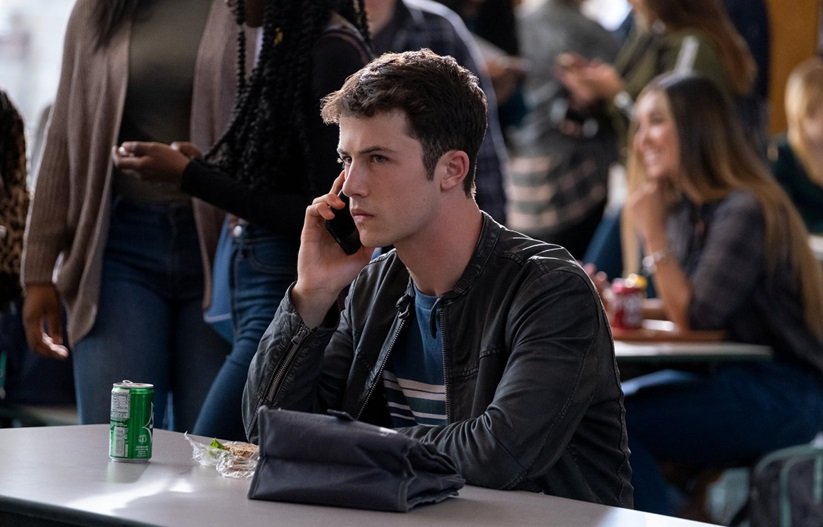Blog
13 Reasons Why (TV Series 2017–2020): An In-Depth Exploration

“13 Reasons Why” is a television series that premiered on Netflix in March 2017, based on Jay Asher’s 2007 novel of the same name. Developed by Brian Yorkey, the series captivated audiences with its intense and often controversial depiction of teenage life and its many challenges. Running for four seasons until 2020, “13 Reasons Why” delves into themes such as suicide, sexual assault, bullying, and mental health, leaving a significant cultural impact and sparking widespread discussion.
Plot Overview: 13 Reasons Why
The series begins with the suicide of high school student Hannah Baker, played by Katherine Langford. Before her death, Hannah records a series of 13 cassette tapes, each directed at a different person she holds responsible for her decision to end her life. These tapes are sent to the individuals mentioned, with the instructions to listen and then pass them along to the next person. The narrative unfolds through the perspective of Clay Jensen, portrayed by Dylan Minnette, who receives the tapes and is profoundly affected by their contents.
The show’s structure is one of its most engaging aspects, alternating between the present day and flashbacks that depict the events Hannah describes on the tapes. This dual timeline keeps the audience engaged and allows for a deeper understanding of the characters and their motivations.
Themes and Controversies

Themes and Controversies: 13 reason why
Suicide and Mental Health
The depiction of suicide is central to the series and arguably its most controversial element. The graphic portrayal of Hannah’s suicide in the first season drew significant backlash from viewers, mental health professionals, and advocacy groups. Critics argued that the scene could be potentially harmful, especially to vulnerable viewers, by glamorizing or normalizing the act of suicide. Netflix responded to the criticism by adding stronger content warnings and resources for viewers, and eventually edited the controversial scene.
Despite the controversy, “13 Reasons Why” succeeded in raising awareness about mental health issues. It sparked important conversations about the necessity of mental health support in schools and communities, and the profound impact untreated mental health issues can have on individuals.
Sexual Assault and Consent
Sexual assault is another major theme tackled by the series. The show portrays multiple instances of sexual violence, including the assault of Hannah Baker and another student, Jessica Davis (played by Alisha Boe). These scenes are intense and disturbing, aiming to highlight the prevalence of sexual violence among teenagers and the often inadequate responses from the institutions meant to protect them.
By portraying the long-term effects of sexual assault on survivors, the series encourages discussions about consent, respect, and the need for comprehensive sex education. It underscores the importance of believing and supporting survivors and the need for systemic changes to prevent sexual violence.
Bullying and Peer Pressure
Bullying is a significant element of Hannah’s story. Throughout the series, viewers witness the various forms of bullying she endures, from cyberbullying to social exclusion and rumor-spreading. The relentless harassment she faces from her peers significantly contributes to her deteriorating mental health.
“13 Reasons Why” emphasizes the severe consequences of bullying and the importance of creating a safe and supportive environment for students. It calls attention to the role of bystanders and the need for proactive measures to prevent and address bullying in schools.
Mental Health and Support Systems
The series also critiques the lack of adequate mental health support systems in schools and communities. Hannah’s attempts to seek help are met with indifference and incompetence, particularly from her school counselor. This portrayal highlights the critical need for better mental health resources and training for educators and counselors to effectively support students in crisis.
Character Development and Performances

Character Development and Performances
The characters in “13 Reasons Why” are complex and multifaceted, contributing to the show’s emotional depth. Katherine Langford’s portrayal of Hannah Baker is particularly noteworthy. Her performance captures the vulnerability, pain, and resilience of a young woman pushed to her limits. Dylan Minnette, as Clay Jensen, delivers a powerful performance as a grieving friend seeking answers and justice.
Other standout performances include Alisha Boe as Jessica Davis, whose journey as a sexual assault survivor is one of the most compelling storylines in the series. Brandon Flynn, who plays Justin Foley, offers a nuanced portrayal of a troubled teen grappling with addiction and a difficult home life. The depth and authenticity of the characters make their struggles and growth throughout the series all the more impactful.
Impact and Legacy
“13 Reasons Why” left a lasting impact on its audience and the broader cultural landscape. It brought critical issues to the forefront, prompting discussions among teenagers, parents, educators, and mental health professionals. The series inspired schools to review their policies on bullying and mental health support and encouraged viewers to seek help and support for their struggles.
The show’s influence extended beyond its initial run, with numerous studies examining its impact on viewers’ mental health and behavior. While some research suggested that the series might have led to an increase in suicide-related internet searches, other studies indicated that it helped raise awareness about mental health issues and encouraged conversations about seeking help.
Criticism and Response
Despite its success, “13 Reasons Why” faced significant criticism for its handling of sensitive topics. Some argued that the series was irresponsible in its portrayal of suicide and sexual assault, potentially causing harm to its viewers. Others felt that it sensationalized these issues for entertainment value rather than addressing them with the necessary sensitivity and nuance.
In response to the criticism, Netflix took several steps to address these concerns. They added content warnings and links to mental health resources at the beginning of each season and after particularly intense episodes. The streaming service also produced a companion documentary, “Beyond the Reasons,” which featured the cast, crew, and mental health professionals discussing the show’s themes and providing additional context and resources for viewers.
must read: Exploring the Fascinating World of Hurbarna
Conclusion
“13 Reasons Why” is a significant cultural artifact that reflects the complexities and challenges of modern adolescence. Through its unflinching portrayal of difficult topics, the series succeeded in sparking important conversations and bringing attention to issues that are often overlooked or stigmatized.
While its approach to sensitive subjects was controversial, there is no denying the impact 13 Reasons Why had on its audience and society as a whole. It served as a wake-up call about the urgent need for better mental health support, comprehensive sex education, and effective anti-bullying measures. As viewers continue to grapple with the themes presented in the series, “13 Reasons Why” remains a powerful reminder of the importance of empathy, understanding, and action in addressing the struggles faced by young people today.
